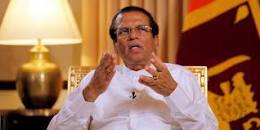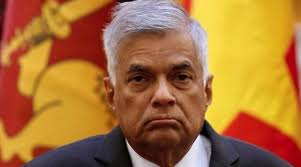Politics is a dirty game whether it applies to Sri Lanka or worldwide. Sri Lankan politicians become an exceptional breed when some of them are seen to be somersaulting from one party to another and in certain cases more than once, without any shame or self-respect, but for their egocentricity. This is believed to be due to an unsatisfactory government constitution that allows peoples’ representatives to ‘jump from one side to another’ without the consent of the people who elect them originally on their party policies or promises given to people before elections. In actual fact, laws need to be passed in the Parliament so as not to allow any peoples’ representative to switch sides willy nilly once they are elected by the voter on their party policies or whatever, but made to resign as an MP and to get elected once again from the new party according to the choice of his electorate by making him face the electorate in a fresh election.
If a particular political party fails to achieve the number of seats required to form a legal government after a general election, it has been the practice to ally with another party. However, politics will start to stink to high heaven if a ruling administration becomes weak and shows signs of a collapse and ‘marketing tactics’ begin to do overtime in Sri Lanka, where millions of Rupees exchange hands as carrots to strengthen the ‘collapsing’ side. Besides, some parliamentarians becoming millionaires overnight, such political hypocrites end up being elected to Ministerial and State Ministerial levels at times without even a portfolio to enjoy other privileges such as duty free cars and official vehicles and security vehicles provided, all such perks maintained by the relevant Ministry; the worse being when they are reluctant to use the road then charter helicopters become from the VVIP/VIP Helicopter Squadron of the Sri Lanka Air Force for domestic travel.
Retirement
Usually ‘the retirement age’ means when a person officially becomes entitled to receive a state pension at the official age at maturity. Surprisingly Sri Lankan parliamentarians qualify for a lifelong pension after being an MP for 5 years. Nowhere else in the world one would find parliamentarians qualifying for a pension in this manner. On the contrary, the ordinary employee has to sweat out until 55 years old to qualify for a pension. It is the ‘pension element’ that has been the main attraction for many to seek government jobs in the administrative service.
In the UK state pension age used to be at 65 for men and 60 for women. The Conservative party of Boris Johnson has plans, recommended by the Centre for Social Justice Think Tank, to increase the qualifying age for the pension to 67 years by 2028 and 68 years by 2046. Supporting such a move by a group known as the ‘ Aging Confidently’ believes that ‘by continuing to work can improve an individual’s health and wellbeing, which would increase the retirement savings and mainly ensures the full functioning of public services for all. ‘Aging Confidently’ also believes that the UK is not responding to the needs and potential of an ageing workforce where hundreds of thousands of people aged between aged 50-64 are regarded as economically inactive. The UK, therefore, plans to announce the state pension age at an even faster – from 2037 and 2039 up to 75 years of age, which means that the average person will be dead and gone before 75 and the government does not have to bother anymore about paying an old-age pension at all.
Politicians in power make controversial decisions according to their whims and fancies. The public in return points an accusing finger at various Sri Lankan ministers, dragging out the pet phrase of ‘ earning ‘commissions’. Sri Lanka’s tender process to award multimillion projects such as motorways, and towards procurement of essential items such as LPG, fuel and Coal, have been frequently exposed for lacking the necessary transparency. A controversy that has become prominent currently in Sri Lanka is about how the power projects are tendered, and the procurement methods of emergency power. In a recent TV panel of discussion, the question was directed at a Colombo Councillor who represented the current administration as to how the Minister of Power, Energy and Business Development has managed to take autocratic decisions when even the President of the country has overruled such procedures!

Even in the UK, there seems to be of no difference. The writer, while in London recently, read in a local newspaper about a £52billion HS2 rail project could be scrapped after the British Government ordered an independent review. The newspaper article exposed how‘ at lease £7.4 billion has already been spent on Britain’s biggest infrastructure project. The review is supposed to consider whether the project should be cut back or cancelled altogether. The transport secretary ordering an enquiry was quoted as saying: ” Just because you’ve spent a lot of money on something shouldn’t mean you to go on ploughing more and more.” So, finally, the design concept for the HS2 train will be going nowhere if the project is called off. The beauty of the British politicians is that when they see something going radically wrong they have the bottle to bring the matter up to the open, whereas it would be impossible to see something similar in Sri Lanka! Even when such questions are directed at Ministers responsible, they are seen simply to evade the question by either turning it into some witty joke or not attending the parliament on that debate day. The latest controversy has arisen over the power sector in Sri Lanka, and how power projects are tendered as well as procurement process of emergency power. Sri Lanka’s investment climate is also unlikely to improve unless the tender process is cleaned up, and it would have the added benefit of saving public funds

Lotus Tower.
The latest controversy over the missing Rs.200 billion in the Lotus Tower Project has managed to disturb the hornet’s nest. After letting the sleeping dogs lie for nearly four and a half years, the President deciding to openly allege about the missing of Rs. 200b alleged to have been paid in 2012, as an advance payment to a Chinese company named ALIT, in the presence of the Chinese Ambassador at the opening ceremony and his claims that the government needs extra millions to complete the work has not only embarrassed the Chinese Government, but has managed to add fuel as a ‘gallop to all political parties and their candidates prior to the Presidential election, scheduled to take place on 16 November 2019. However, former President Mahinda Rajapaksa ( present leader of the opposition) in a statement refuted such allegations about the missing US$15 million, in connection with the Lotus Tower Project in 2012.

Whilst the debate goes on whether the President Sirisena has been misinformed by one of his consultants, as according to news reports, the ALIT company in China is said to be located from the google map! However, in the meanwhile, the Committee on Public Enterprises (COPE) has decided to commence an enquiry on allegations regarding the construction and opening of the Lotus tower. Last week the Chairman of the COPE assured he would summon all institutions that had links in connection with the creation of the Lotus Tower. The Auditor-General’s special report presented to the Parliament on 1 April 2019 would assist the COPE investigations from the planning stage of the Tower, perhaps before the Presidential election to clear any misunderstandings on the missing money, as it could be used as a trump card for the opposition.
The latest disagreements between the President and the Prime Minister’s disclosures on public platforms not only make Sri Lankan politics a laughing stock throughout the world and drive the voter to the extent of getting fed up to their back teeth. It is hoped that it will give the voter a clear indication to make up his/her mind at the approaching presidential election whether a repetition of politicians of such calibre should be appointed again.


Many individuals who appear on the internet (YouTube) Vishwakarma channel confirm, through yogic or meditative experts about the present drastic climatic conditions as nothing but nature’s wrath due to the impractical behaviour of those who govern this country. It’s a shame that none of the Sri Lankan TV journalists can be on par with the CNN’s Travel Correspondent, Richard Quest, who interviewed Prime Minister Ranil Wickremesinghe in Colombo a few days ago. Those who watched the interview should be aware of how Richard Quest got up from his chair, leaned forward towards the Prime Minister and asked him (PM) whether it was a ‘secret’ about naming the UNP Presidential Candidate, to which the Prime Minister’s reply was “ No Richard, I am a bit frightened because every politician wants the top job, and all of the 225 are frightened that all of them should be thrown out.” The TV viewers who watched the interview on news channels should be aware of what came out of the horse’s mouth itself – how the public feeling is about politicians, including the Prime Minister in this country.
Picture credit:Colombo page; Google – Telegraph pics.






